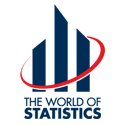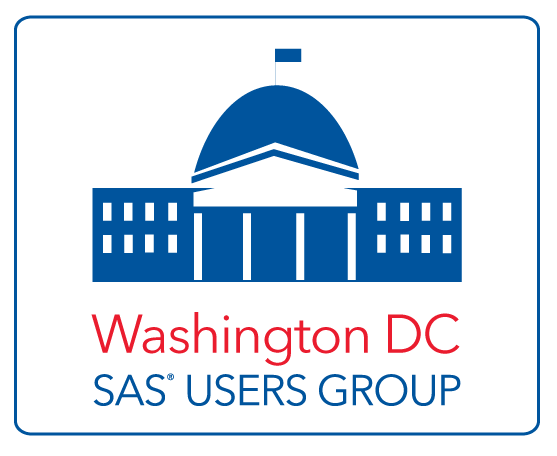November 2006
Contents:
- Holiday Party
- 16th Annual Morris Hansen Lecture
- Herriot Award Nominations Sought
- Seminars & Call For Abstracts:
- Education Announcements:
- SIGSTAT Topics for November 2006 to December 2006
- Short Courses (includes JPSM courses)
- Spring 2007 Graduate Statistics Courses (pdfs)
American University
Georgetown University
Bioinformatics & Biomathematics
Department of Mathematics
George Washington University
Johns Hopkins University
- Employment Opportunities
- Note From The WSS NEWS Editor
- WSS People
- PDF Versions:
(Requires Adobe Acrobat Reader)
Newsletter
Area Meetings and Courses
Holiday Party
The Holiday Party will be held at Gordon Biersch which is located at 900 F Street, NW, Washington, DC on December 13, 2006 at 6:00 p.m. See the flyer (pdf) for more details.
Return to top16th Annual Morris Hansen Lecture
Michael F. Goodchild, Professor of Geography (University of California, Santa Barbara) will give the 16th Annual Morris Hansen Lecture on Monday November 6 at 3:30p.m. in the Jefferson Auditorium of the Department of Agriculture's South Building (Independence Avenue SW, between 12th and 14th Street).
Dr. Goodchild will speak on "Statistical Perspectives on Spatial Social Science." Sarah Nusser (Iowa Sate University) and Linda Pickle (National Cancer Institute) will be the discussants. A reception will follow the lecture. The Hansen Lecture Series is sponsored by the Washington Statistical Society, Westat, and the National Agricultural Statistics Service.
The USDA's South Building is between 12th and 14th Streets at the Smithsonian Metro Stop (Blue Line). Enter through Wing 5 or Wing 7 from Independence Ave. (The handicapped entrance is at 12th & Independence). A photo ID is required.
Please pre-register for this event to help facilitate access to the building. Pre-register on line at http://www.nass.usda.gov/morrishansen/
Return to topHerriot Award Nominations Sought
Nominations are sought for the 2007 Roger Herriot Award for Innovation in Federal Statistics. The award is intended to reflect the special characteristics that marked Roger Herriot's career:
- Dedication to the issues of measurement;
- Improvements in the efficiency of data collection programs; and
- Improvements and use of statistical data for policy analysis.
The award isnot limited to senior members of an organization, nor is it to be considered as a culmination of a long period of service. Individuals at all levels within Federal statistical agencies, other government organizations, nonprofit organizations, the private sector, and the academic community may be nominated on the basis of their contributions.
The recipient of the 2007 Roger Herriot Award will be chosen by a committee comprising representatives of the Social Statistics and Government Statistics Sections of the American Statistical Association, and of the Washington Statistical Society. Roger Herriot was associated with and strongly supportive of these organizations during his career. The award consists of a $1000 honorarium and a framed citation, which will be presented at a ceremony at the Joint Statistical Meetings in August 2007. The Washington Statistical Society will also host a seminar given by the winner on a subject of his or her own choosing.
The previous recipients of the Roger Herriot Award are Joseph Waksberg (Westat), Monroe Sirken (NCHS), Constance Citro (CNStat), Roderick Harrison (Census Bureau), Clyde Tucker (BLS), Thomas Jabine (SSA, EIA, CNStat), Donald Dillman (Washington State University), Jeanne Griffith (OMB, NCES, NSF), Daniel Weinberg (Census Bureau), David Banks (FDA, BTS, NIST), Paula Schneider (Census Bureau), Robert E. Fay III (Census Bureau), and Nathaniel Schenker (NCHS).
Nominations for the 2007 award will be accepted beginning in February 2007. Nomination packages should contain:
- A cover letter from the nominator that should include references to specific examples of the nominee's contributions to innovation in Federal statistics. These contributions can be to methodology, procedure, organization, administration, or other areas of Federal statistics, and need not have been made by or while a Federal employee.
- Up to six additional letters in support that demonstrate the innovativeness of each contribution.
- A current vita for the nominee, including contact information.
Both individual and group nominations may be submitted. The committee may consider nominations made for the 2006 award, but it encourages resubmission of those nominations with updated information.
For more information, contact Daniel Weinberg, Chair, 2007 Roger Herriot Award Committee, at 301.763.5791 or Daniel.H.Weinberg@census.gov. Completed packages must be received by April 1, 2007. Electronic submissions in MS-Word or as a "pdf" file are encouraged.
Alternately, nominations may be mailed to:
Dr. Daniel H. Weinberg
Chief, Center for Economic Statistics
U.S. Census Bureau
Washington, DC 20233-6300
Federal Committee On Statistical Methodology Statistical Policy Seminar
Keeping Current: What We Know What We Need To Learn
November 28-29, 2006
The Eighth in a Series of Seminars Hosted by COPAFS
(The Council of Professional Associations on Federal Statistics)
Participants will include statisticians, economists, and managers, as well as other professionals in the broader statistical community who share an interest in keeping current on issues related to federal data.
Support Provided by:- Agency for Healthcare Research and Quality
- Bureau of Economic Analysis
- Bureau of Justice Statistics
- Bureau of Labor Statistics
- Bureau of Transportation Statistics
- Energy Information Administration
- Environmental Protection Agency * National Agricultural Statistics Service
- National Center for Education Statistics
- National Center for Health Statistics * Office of Research, Evaluation, and Statistics of the Social Security Administration* Statistics of Income Division of the Internal Revenue Service
- U.S. Census Bureau
Topics:
- The Quality of Administrative Records for Statistical Uses
- Longitudinal Survey Designs: Current Best Practices and Continuing Challenges
- Providing Researchers Access to Federal Data
- The Future of Telephone Surveys
- Positioning the Federal Statistical System to Quickly Respond to Data Needs in Times of Crisis or Catastrophe
- Nonresponse Bias Analyses in Federal Surveys
- Incentives - New Results on the Effects of Incentives
- Total Survey Error in Economic Statistics
- How to Encourage Innovation
- Using Internet Panels For National Data
- Modeling Survey Costs: Towards a Research Agenda
- Establishing Archival Data Systems for Agency Historical Information
Keynote Address: Kenneth Prewitt, Columbia University
Location: L'Enfant Plaza Hotel, 480 L'Enfant Plaza, S.W., Washington D.C. 20024. To Reserve a Room Call: 202-484-1000
Seminar Registration Cost: $195.00 per person
Downloaded A Registration Form At:http://www.copafs.org
For Further Information, Contact the COPAFS Office at:
Phone: 703-836-0404
Email: copafs@aol.com
Quantitative Methods in Defense and National Security
George Mason University
February 7-8, 2007
Abstract Submissions Due: November 15, 2006
Website: http://www.galaxy.gmu.edu/QMDNS2007/
The second annual Quantitative Methods in Defense and National Security conference (QMDNS-07) will be held at George Mason University at the Fairfax Virginia Campus. The goal of the conference is to promote collaboration between those with quantitative national security problems (e.g., defense and homeland security practitioners) and those who solve quantitative problems (e.g., statisticians, mathematicians, operations researchers, engineers, and others).
In many aspects, the problems in defense and national security that we must address today are different from those of the past. In part, this is due to our having a more sophisticated understanding of the circumstances under which a national problem should be classified as a defense or security problem. For example, there is a need for effective measures to counter the consequences of asymmetric warfare and terrorism in whatever form they may take and affect our civilian or military populations. (It should be noted that there could be instances in which the distinctions between those populations are, for practical purposes, irrelevant.)
In addition, those who would perpetrate such threats have greater access than ever before to rapid communications and information via the internet on, for example, public health, economic and border-access data and resources, which could enable them to enhance the effectiveness of their efforts. This conference strives to promote collaboration and networking by focusing on challenges, data, and solutions in the defense and national security arenas.
The conference program will consist of invited sessions, contributed talks, and contributed posters. Contributed talks and posters will be refereed based on extended abstracts. We are looking for contributed talks and posters that
- Describe quantitative methods from Operations Research, Statistics, Probability, Machine Learning, and others that can be used to solve problems in defense and national security.
- Describe problems in defense and national security that researchers can address.
Please go to the conference website (http://www.galaxy.gmu.edu/QMDNS2007/) for information on abstract submission and other details. The last day to submit abstracts for the contributed program is November 15, 2006. Please contact Jeffrey Solka (jeffrey.solka@navy.mil) if you have questions.
Return to top
Eleventh Biennial CDC & ATSDR Symposium on Statistical Methods
April 17-18, 2007
Call For Abstracts
Statisticians,social and behavioral scientists, epidemiologists, economists, policy analysts, and others are invited to participate in the Eleventh Biennial Symposium on Statistical Methods, sponsored by the Centers for Disease Control and Prevention & Agency for Toxic Substances and Disease Registry (CDC & ATSDR), the American Statistical Association (ASA) and the Biostatistics Department at Emory University Rollins School of Public Health. The Symposium will be held in Atlanta, GA. The theme for the 2007 Symposium is "Analyzing and Mapping Health Inequities to Impact Policies for Eliminating Disparities." Two short courses (Bayesian Small Area Estimation and Statistical Analysis Using GIS Data Measuring Disparities) will be offered on April 16, 2007 in conjunction with the Symposium.
Authors are encouraged to submit abstracts for contributed papers related to one of the following session topics:
- Racial and ethnic minorities
- Statistical and cost methodologies, including systematic reviews
- At risk populations with characteristics related to age, low income, sexual orientation, language barriers, disability and geographic locations
- Underrepresented or "invisible" populations: institutionalized populations, the homeless, immigrants, and others
- Disparities in occupational employment
- Environmental justice: cancer clusters, location of brownfields, hazardous facilities and socioeconomic class
- Access to and quality of care
- Emergency and program planning
- Health behavior and promotion
Abstracts will be considered for either oral or poster presentation and must be submitted no later than November 20, 2006. Authors of accepted presentation will be notified by January 5, 2007. For more information, please visit the Symposium website at http://www.cdc.gov/ods/ads/sag/index.htm or contact:
Mark Stevens
Centers for Disease Control and Prevention
4770 Buford Hwy NE (MS K-10)
Atlanta, GA 30341-3717
(770) 488 5673
MStevens@cdc.gov
SIGSTAT Topics for November 2006 to December 2006
November 15, 2006: Using SAS PROC MIXED to Fit Multilevel & Hierarchical Models
This talk will follow the paper, "Using SAS PROC MIXED to Fit Multilevel Models, Hierarchical Models, and Individual Growth Models" by Judith Singer (1998) which can be downloaded from her website, http://gseweb.harvard.edu/~faculty/singer/.
In the November meeting we'll use a school effects model, designed for data nested within naturally occurring hierarchies (e.g., students within classes). Charlie Hallahan will be the speaker.
December 20, 2006: Using SAS PROC MIXED to Fit Individual Growth Models
This talk will follow the paper, "Using SAS PROC MIXED to Fit Multilevel Models, Hierarchical Models, and Individual Growth Models" by Judith Singer (1998) which can be downloaded from her website, http://gseweb.harvard.edu/~faculty/singer/.
In the December meeting we'll use an individual growth model designed for exploring longitudinal data (on individuals) over time. Charlie Hallahan will be the speaker.
SIGSTAT is the Special Interest Group in Statistics for the CPCUG, the Capital PC User Group, and WINFORMS, the Washington Institute for Operations Research Service and Management Science.
All meetings are in Room S3031, 1800 M St, NW from 12:00 to 1:00 (note new time). Enter the South Tower & take the elevator to the 3rd floor to check in at the guard's desk.
First-time attendees should contact Charlie Hallahan, 202-694-5051, hallahan@ers.usda.gov and leave their name. Directions to the building and many links of statistical interest can be found at the SIGSTAT website, www.cpcug.org/user/sigstat/
Return to topNote From The WSS NEWS Editor
Items for publication in the January issue of the WSS NEWS should be submitted no later than November 28, 2006. E-mail items to Michael Feil at michael.feil@usda.gov.
Return to topClick here to see the WSS Board Listing (pdf)
Return to top






